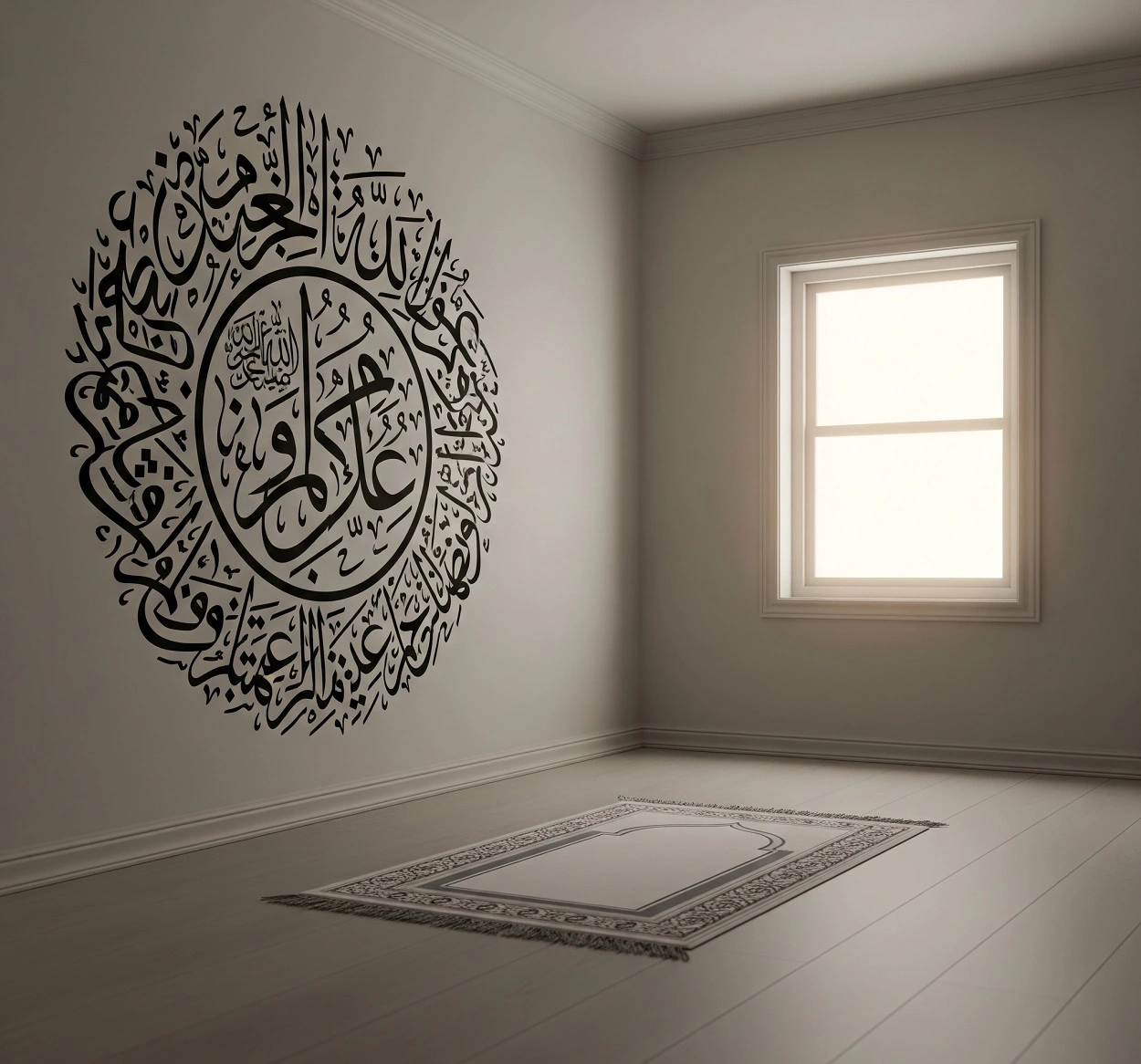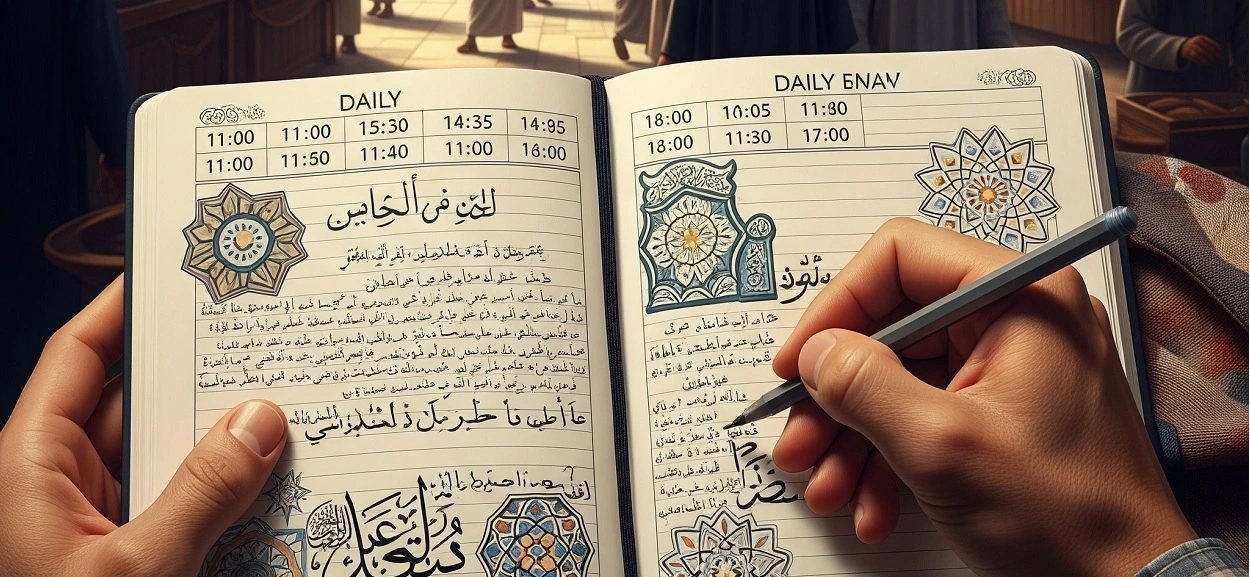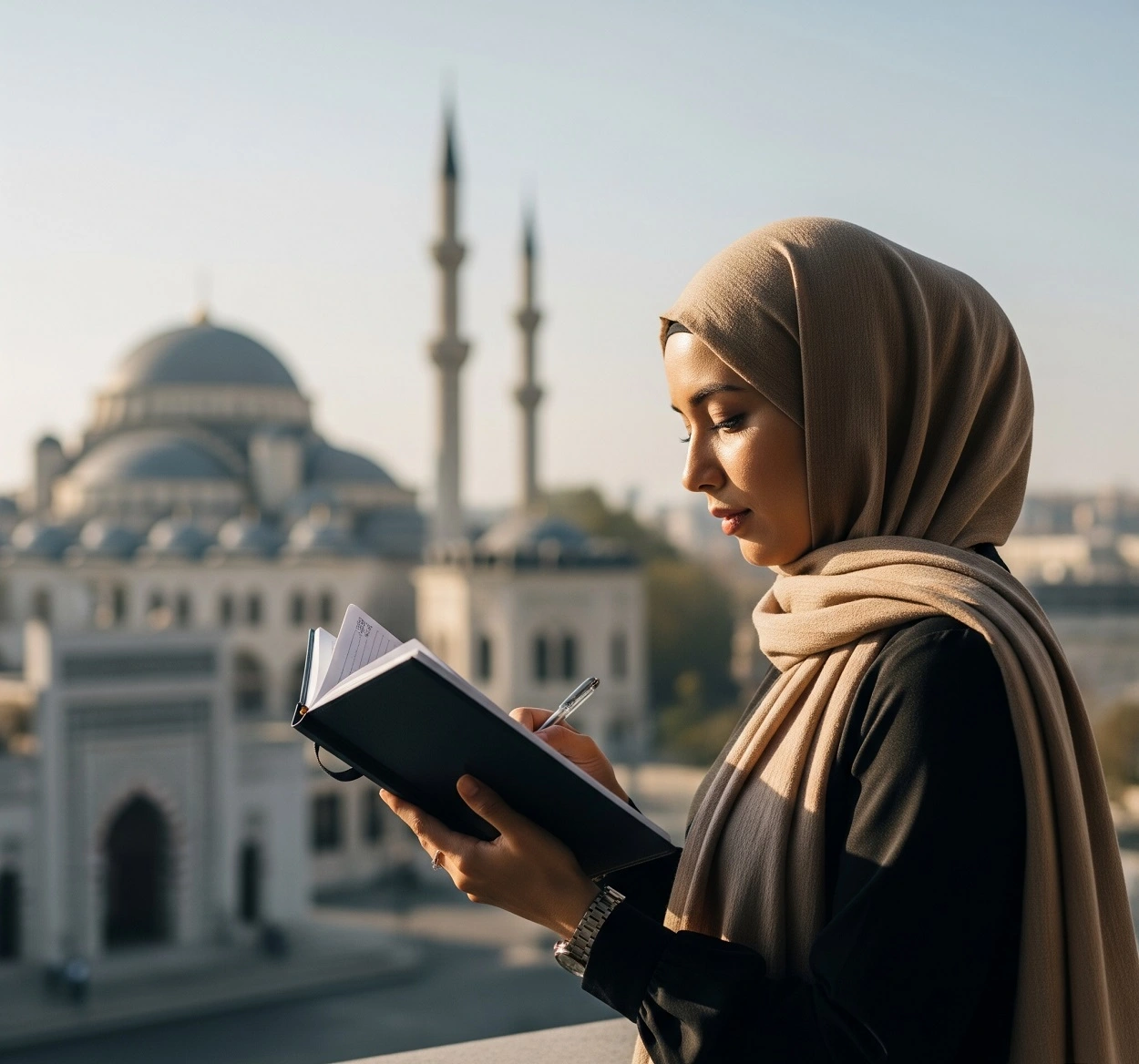Minimalist Lifestyle in Islam: Achieving Blessing Through Simplicity of Heart
Want a calmer, more meaningful life? Explore the Islamic minimalist lifestyle, aligning with zuhud and qana'ah. Discover practical tips to declutter, focus spiritually, and achieve true blessing.

Amidst the hustle and bustle of a world constantly pushing us to acquire more, a fascinating and increasingly popular trend has emerged: the minimalist lifestyle. It’s a philosophy that invites us to reduce unnecessary material possessions, simplify our lives, and focus on things that genuinely add value. Many find peace and freedom in this concept.
But did you know that long before minimalism became a global trend, Islam had already taught principles aligned with it? The concepts of Muslim simplicity, zuhud, and qana’ah are at the core of our religion’s teachings. This isn’t just an aesthetic trend; it’s a way of life that invites blessings in life (Islamic) and true inner tranquility. Let’s explore how Islam views and encourages us to adopt a minimalist lifestyle in Islam in this modern age of consumerism.
What is a Minimalist Lifestyle? More Than Just Aesthetics
Generally, a minimalist lifestyle is about living with less. It means consciously reducing non-essential possessions, decluttering both physical and mental spaces, and prioritizing experiences, relationships, and personal growth over material accumulation. The goal is to reduce stress, find freedom, and create space for what truly matters.
Why is it popular? Because many modern people feel burdened by consumerism: mounting debt, homes overflowing with unused items, and a sense of emptiness despite continuous purchasing. Minimalism offers a break from this cycle.
The Concept of Simplicity in Islam: Deep Philosophical Roots
In Islam, the minimalist lifestyle has very strong and deeper roots than just a trend. It’s based on the concepts of:
- Zuhud: This doesn’t mean abandoning the world entirely and living in poverty, but rather detaching the heart from worldly possessions. The world is in your hand, not in your heart. A person with zuhud might be wealthy, but their heart isn’t tied to their wealth, making it easy for them to spend it in the way of Allah and not be overly sad if they lose it. They choose what is lawful and sufficient, without excess.
- Qana’ah: Being content with what Allah has given, being grateful, and not being greedy or envious of what others possess. Qana’ah in Islam is an invaluable source of inner peace.
- Prophet Muhammad (PBUH) said, “Indeed, he has succeeded who has accepted Islam, been provided with sufficient sustenance, and Allah has made him content with what He has given him.” (HR. Muslim).
- Israf (Extravagance) and Tabdhir (Wastefulness): Islam strictly forbids israf (excessiveness) in all matters, whether eating, drinking, dressing, or buying goods. It also forbids tabdhir (squandering wealth without benefit).
- ”…and do not be extravagant. Indeed, Allah does not like the extravagant.” (QS. Al-An’am: 141).
- The main difference: Modern minimalism might focus on efficiency and aesthetics, while Islamic concepts focus on inner peace, divine responsibility, and preparation for the hereafter. Both can overlap, but Islam provides a deeper spiritual dimension.
Exemplary Simplicity from Prophet Muhammad (PBUH) and the Companions
Prophet Muhammad (PBUH) is the best example of living a simple life:
- He slept on a rough mat until it left marks on his body. When offered a softer mattress, he refused.
- His house was simple, sometimes only having dates and water for food. He once tied a stone to his stomach due to hunger.
- His clothes were simple, and he did not differentiate himself from his companions.
- Abu Bakr As-Siddiq, the first Caliph, was also known for his simplicity and care for the poor.
- Umar ibn al-Khattab, despite being the leader of a vast empire, lived a very ascetic and humble life.
These stories are not just tales but powerful inspirations that true success is not measured by accumulated wealth, but by inner peace and obedience to Allah.
Spiritual and Worldly Benefits of an Islamic Simple Life
Adopting an Islamic minimalist lifestyle brings immense benefits:
- Inner Peace: The heart is not burdened by endless worldly desires. You’ll be more focused on essential things.
- Avoiding Heavy Accountability (Hisab): The more wealth one has, the longer the accountability on the Day of Judgment. A simple life lightens this burden.
- Focus on the Hereafter: Energy and time usually spent chasing material possessions can be diverted to worship, seeking knowledge, and doing good deeds. This is Muslim anti-consumerism that is pro-hereafter.
- Freedom from Material Shackles: No longer a slave to brands or trends. You’ll feel more independent and free.
- More Time and Energy: Less stuff means less time spent cleaning, maintaining, and buying new items. This time can be used for family, worship, or beneficial activities.
- Empathy and Generosity: By not being attached to wealth, the heart will be more inclined to share and give sadaqah (charity), which opens doors to sustenance and blessings.
Practical Tips for Implementing an Islamic Minimalist Lifestyle
How can we start applying these principles in daily life?
Evaluate Possessions:
- Ask yourself: Do I truly need this item? Does it bring benefit or merely satisfy a desire?
- Donate or sell items unused for more than a year, except those with sentimental value or specific functions.
Prioritize Spiritual Experiences and Knowledge Over Material Possessions:
- Instead of buying the latest gadget, allocate funds for religious studies, participating in Islamic rihlah (journeys), or purchasing books that enhance faith.
- Investments in experiences (quality time with family, journeys to witness Allah’s grandeur) are often more meaningful than material goods.
Be Prudent in Consumption (Food, Clothing, Technology):
- Food: Don’t be excessive; eat enough to be full (not overstuffed). Avoid food waste.
- Clothing: Own only necessary and appropriate clothing; no need to follow every fashion trend. Prioritize covering awrah (modesty) and comfort.
- Technology: Buy devices truly needed for productivity and worship, not just for lifestyle.
Sharing and Giving Sadaqah (Purifying Wealth):
- This is the best way to release attachment to wealth and cleanse oneself from stinginess.
- Sadaqah does not decrease wealth; rather, it blesses it.
Avoiding Ostentation (Riya’) and Excessive Lifestyles:
- Stay away from the “what will people say” mentality. Do everything solely for Allah, not for human praise or recognition.
- Prophet Muhammad (PBUH) disliked riya’ (showing off) and sum’ah (seeking fame).
Focus on Eternal Matters:
- Shift energy and attention from fleeting worldly matters towards investments for the hereafter: worship, beneficial knowledge, righteous children, and ongoing charity (sadaqah jariyah).
Conclusion: Serenity in Simplicity
The minimalist lifestyle from an Islamic perspective is an invitation to shed the shackles of consumerism, simplify the heart, and find true richness in closeness to Allah SWT. It’s not about material poverty, but about richness of the soul; not about lack, but about blessed sufficiency.
By adopting the principles of zuhud and qana’ah, we will find irreplaceable tranquility, free ourselves from the endless worldly race, and invest in what is truly eternal. Start small steps today. Feel how a blessed Islamic life can be achieved through simplicity.
What is one Islamic minimalist habit you’ve already adopted or want to start implementing? Share it in the comments section below!
For more visual inspiration on how simplicity can create beauty, check out our gallery of ‘Minimalist Muslim Home Designs’ here.





Comments